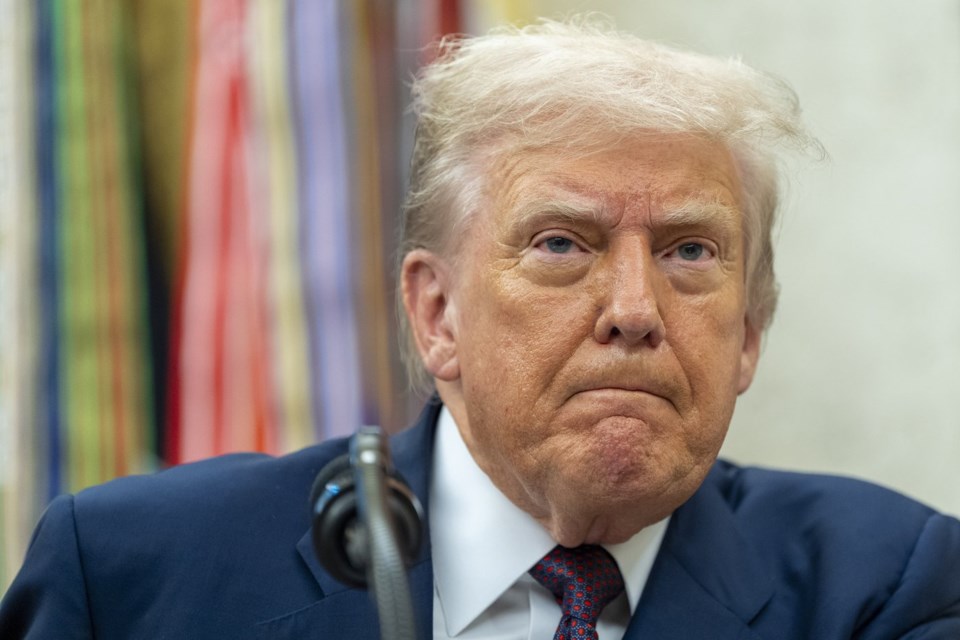President Donald Trump's plans for 100% tariffs on computer chips that aren't made in the U.S. are stoking confusion among businesses and trading partners — boosting stocks for leading semiconductor companies while leaving smaller producers scrambling to understand the implications.
“We are still waiting for official guidance," said Limor Fried, founder and engineer at Adafruit Industries, a small electronics maker in New York.
The chips that go into Adafruit's products come through U.S. sales and distribution companies as well as direct from companies in the Philippines and Taiwan.
If those chips aren't exempt, “it would increase the costs that go into our designs as the semiconductors are the most expensive component in our assemblies,” Fried said. "For many of these tariffs, we often have to wait until we get a bill to know our exposure, and then we adjust our pricing to account for the increases.”
The U.S. imports a relatively small number of chips because most of the foreign-made chips in a device — from an iPhone to a car — were already assembled into a product, or part of a product, before it landed in the country.
"The real question everybody in the industry is asking is whether there will be a component tariff, where the chips in a device would require some sort of separate tariff calculation,” said Martin Chorzempa, a senior fellow at the Peterson Institute for International Economics.
Trump said Wednesday that companies that "made a commitment to build" in the U.S. would be spared the import tax, even if they are not yet producing those chips in American factories.
“We’ll be putting a tariff of approximately 100% on chips and semiconductors,” Trump said in the Oval Office while meeting with Apple CEO Tim Cook. “But if you’re building in the United States of America, there’s no charge.”
Wall Street investors interpreted that as good news not just for U.S. companies like Intel and Nvidia, but also for the biggest Asian chipmakers like Samsung and Taiwan Semiconductor Manufacturing Company that have been working to build U.S. factories.
But it left greater uncertainty for smaller chipmakers in Europe and Asia that have little exposure to the artificial intelligence boom but still make semiconductors inserted into essential products like cars or washing machines.
German chipmaker Infineon Technologies, which supplies chips to the auto industry, said in an emailed statement Thursday that it “can’t speculate about potential semiconductor tariffs” and Trump's announcement, “as no official documents have been published at this point.”
These producers "probably aren’t large enough to get on the map for an exemption and quite probably wouldn’t have the kind of excess capital and margins to be able to add investment at a large scale into the United States,” Chorzempa said.
It's also not clear how the chip-specific tariffs would apply to trading partners that already made broader deals with Trump — such as agreements with the European Union, Japan and South Korea that tax most goods at 15%.
The announcement came more than three months after Trump temporarily exempted most electronics from his administration’s most onerous tariffs.
During the COVID-19 pandemic, a shortage of computer chips increased the price of autos and contributed to higher inflation. Chorzempa said chip tariffs could again raise prices by hundreds of dollars per vehicle if the semiconductors inside a car are not exempt.
“There’s a chip that allows you to open and close the window," Chorzempa said. "There’s a chip that is running the entertainment system. There is a chip that’s kind of running all the electronics. There are chips, especially in EVs, that are doing power management, all that kind of stuff.”
Much of the investment into building U.S. chip factories began with the bipartisan CHIPS and Science Act that President Joe Biden signed into law in 2022, providing more than $50 billion to support new computer chip plants, fund research and train workers for the industry.
Trump has vocally opposed those financial incentives and taken a different approach, betting that the threat of dramatically higher chip costs would force most companies to open factories domestically, despite the risk that tariffs could squeeze corporate profits and push up prices for electronics.
Trump’s announcement could be a signal for other chipmakers to imitate the investments that companies like South Korea's Samsung are making, said Long Le, a business professor at Santa Clara University.
But with China’s SMIC and Huawei unlikely to be exempted, it could also give the Trump administration "more leverage at the trading table" ahead of an upcoming deal with China, he said.
Matt O'brien And Mae Anderson, The Associated Press



